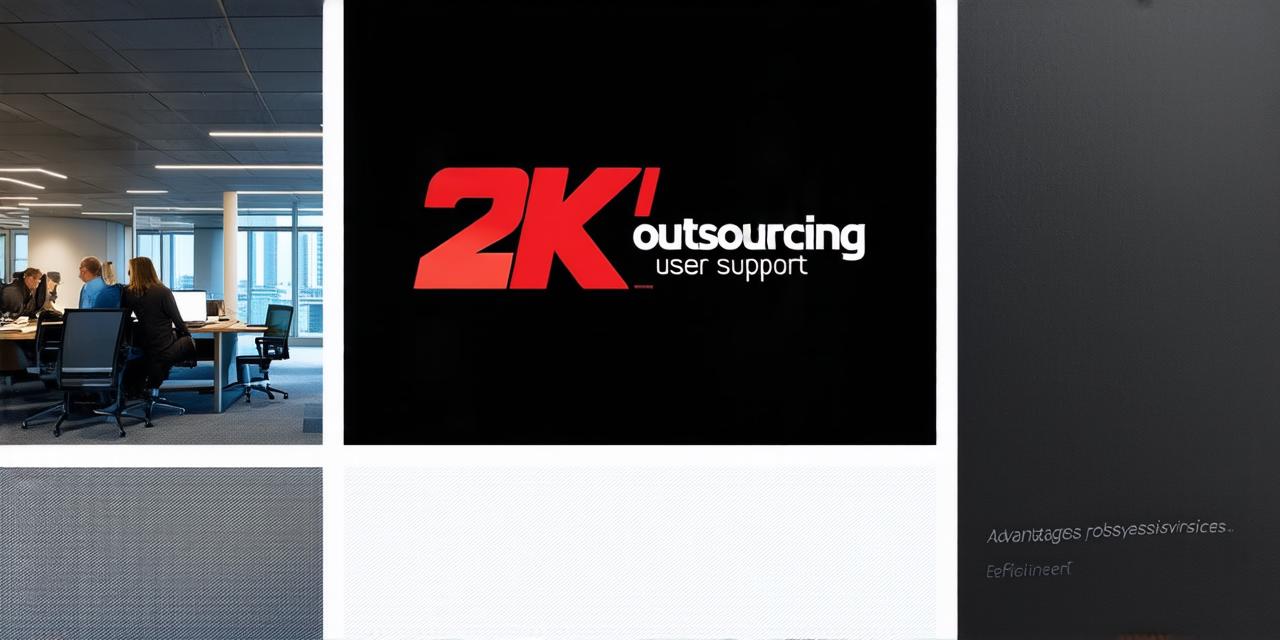Which of these is an advantage to outsourcing as a way to provide user support?
Are you tired of spending countless hours managing user support? Are you looking for a cost-effective and efficient way to provide exceptional customer service? If so, outsourcing may be the solution. In this article, we’ll explore some of the key advantages of outsourcing user support, and how it can benefit businesses of all sizes.
Reduced Costs
One of the most significant advantages of outsourcing user support is that it can help reduce costs. When you hire an in-house support team, you’re responsible for paying salaries, benefits, and training expenses. On the other hand, when you outsource to a third-party provider, these costs are typically passed on to you as part of their service. This means you’ll save money on hiring and managing a support team, which can free up resources for other areas of your business.
24/7 Availability
Another advantage of outsourcing user support is that it allows businesses to provide 24/7 availability to their customers. Many third-party providers offer round-the-clock coverage, which means that customers can get help at any time, day or night. This not only improves customer satisfaction but also helps increase sales and revenue by ensuring that customers have a positive experience with your brand.
Expertise and Specialization
When you outsource user support, you’re also gaining access to specialized expertise and knowledge. Third-party providers typically have teams of highly skilled and experienced support professionals who can handle a range of tasks, from troubleshooting technical issues to providing product recommendations. This means that you can focus on your core business activities while leaving the support work to the experts.

Flexibility and Scalability
Outsourcing user support also provides businesses with greater flexibility and scalability. Third-party providers can quickly scale up or down depending on your needs, which means that you can adapt to changing market conditions and customer demands. Additionally, outsourcing allows businesses to be more agile in their responses to customer issues, as they don’t have to go through the internal approval process that is often required when hiring new employees.
Case Studies and Personal Experiences
Let’s take a look at some real-life examples of how outsourcing user support has benefited businesses.
Example 1: Small Business Owner
A small business owner was struggling to keep up with the growing demand for customer support. They hired a part-time employee, but found that they were unable to provide consistent and timely service. By outsourcing to a third-party provider, the business owner was able to access a team of experienced support professionals who could handle their customer inquiries 24/7. This not only improved customer satisfaction but also allowed the business owner to focus on growing their business.
Example 2: Large Enterprise
A large enterprise was looking for a more cost-effective way to provide user support to their customers. They compared the costs of hiring an in-house team to those of outsourcing, and found that outsourcing was significantly less expensive. By working with a third-party provider, the company was able to reduce their staffing costs by 50%, which allowed them to invest in other areas of their business.
Summary
In conclusion, there are many advantages to outsourcing user support. By reducing costs, providing 24/7 availability, gaining access to specialized expertise and knowledge, and offering greater flexibility and scalability, businesses can improve customer satisfaction and grow their bottom line. Whether you’re a small business owner or a large enterprise, outsourcing user support can be an effective way to provide exceptional customer service at a lower cost.
